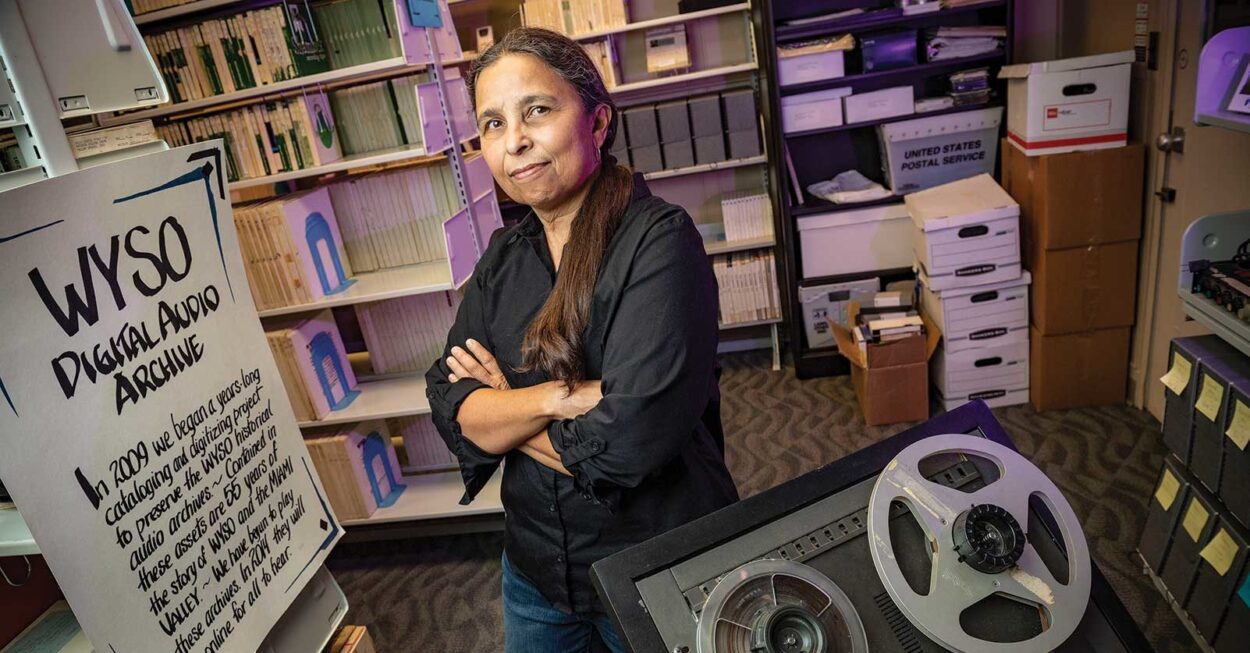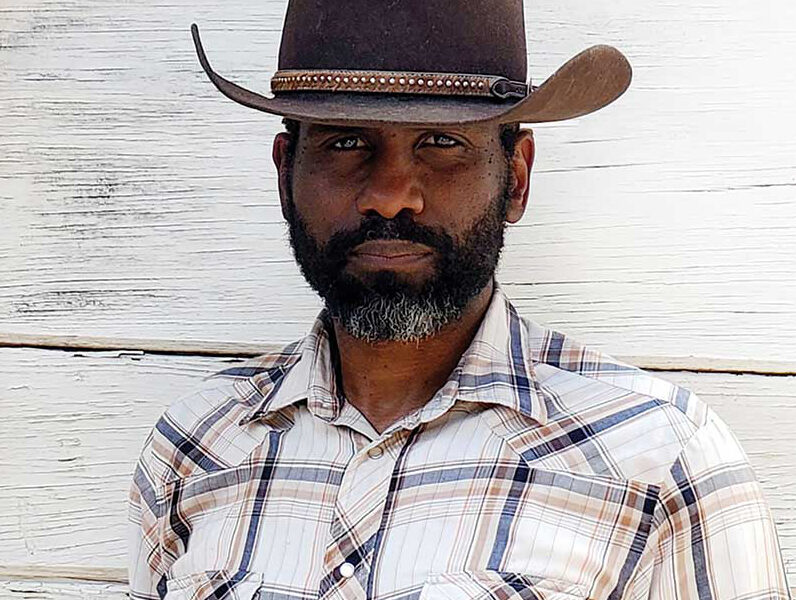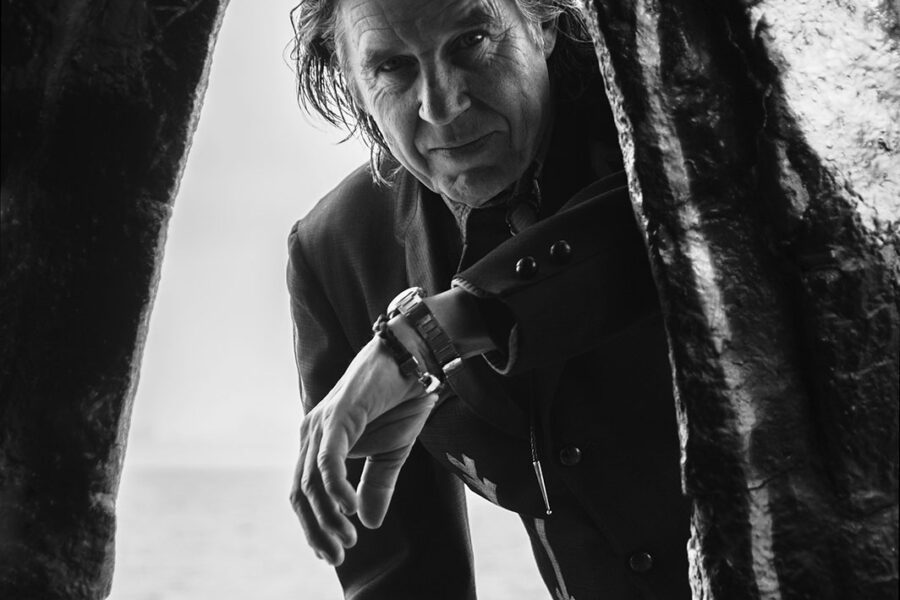In 1964, Jocelyn Robinson ’07 (Antioch McGregor, MA in Cultural Studies) was an eight-year-old girl growing up in Yellow Springs, Ohio, when the Civil Rights movement came to her small village, long considered a progressive island in the conservative ocean of southwest Ohio. On March 14, 1964, the picketing of Gegner’s Barber Shop, a business that refused to serve African-Americans, escalated into a clash that resulted in more than 100 arrests.
“My parents took us to a demonstration that erupted into tear gas and chaos, firehoses, the whole thing,” Robinson remembers. “Here in this liberal enclave. This was part of my history; I was there; my mother picketed the barbershop.”
As with so many childhood memories, the emotions remain more vivid than the details.
After she graduated from Yellow Springs High School in 1974, she earned a BA in Art History at Wright State University in Dayton, Ohio, in 1987. She worked for the African American Museums Association in Wilberforce and later at the town’s Central State University, Ohio’s only public historically Black university. In 2007, she earned her Master’s Degree in Cultural Studies with a concentration in Race, Gender, and Identity.
“At Antioch, I could design my own master’s program,” she explains. “It gave me the flexibility that I wouldn’t have had at another institution—and that was important because I was in my fifties and still working. It was individualized, which meant I didn’t have to go to classes. To have that kind of freedom to pursue my own path was very important.”
Today, Robinson teaches African American Literature for Antioch’s Online Undergraduate Studies program.
In 2013, Robinson realized that radio might be a way to pull together her interest in African American literature and culture with telling her family stories. With a long history at the town’s public radio station, WYSO, she enrolled in a radio production course offered by the station’s Community Voices program. The program gives local residents the time and space to tell their own stories, in their own words, without commercial interruptions.
Using digitized archival audio for her Community Voices class project, she produced a five-minute audio documentary about the barbershop protests. It was so impressive that she was named the station’s first-ever Archives Fellow.
The audio Robinson used for her project came from digitized reel-to-reel tape recordings of WYSO broadcasts from the late 1950s into the early 1980s.
“In the past, few radio stations invested much of their time or resources recording and preserving the programming
they broadcasted,” Robinson says. “But WYSO did.”
WYSO, which was formerly Antioch’s radio channel, preserved a great deal. They captured voices from historical events like the civil rights movement and the Vietnam War. They made thousands of recordings, and then the tapes were packed into boxes and largely forgotten for almost 20 years—a mistake that could have led to their destruction.
“Quarter-inch tape deteriorates over time; it’s fairly delicate, a perishable thing. And yet these are voices of people from long ago, who provide a chronicle of events long gone,” Robinson says.
In 2009, the WYSO station manager rediscovered the tapes. They contained the voices of local people, of students and faculty, but also famous voices like President Lyndon B. Johnson, Black Nationalist Kwame Ture, poet Robert Bly, writers Alice Walker and Susan Sontag, jazz musician Cecil Taylor, oral historian Studs Terkel, and many more.
It was then that the WYSO Archives was born. About 300 of the 3,000 tapes were digitized, many of which are remarkable. One of those tapes is Dr. Martin Luther King’s speech at Antioch’s June 19, 1965 commencement ceremony. King’s wife, Coretta Scott King, graduated from Antioch in 1951.
“It was one of King’s earliest speeches to mention the Vietnam War—22 months before his famous Riverside Church speech condemning the war and just three months after the violence in Selma, Alabama, and the march to Montgomery,” Robinson says.
As the project director for the audio series West Dayton Stories, Robinson is helping others to claim their own narratives through digital storytelling.
Robinson then launched Rediscovered Radio, short audio documentaries using WYSO’s civil rights era audio as source material. For her efforts, she won the 2014 Award for Best Series from Public Radio News Directors Incorporated. The series received state and national honors, and Robinson was recognized with a 2014 New Voices Scholar Award from the Boston-based Association of Independents in Radio (AIR).
In 2016, she attended a conference of the Radio Preservation Task Force, sponsored by the Library of Congress. There she met other professionals interested in preserving radio archives. She was asked to serve on the task force’s African American and Civil Rights Radio Caucus.
Robinson proposed a research project to survey the archival holdings of radio stations at Historically Black Colleges and Universities (HBCUs). The National Recording Preservation Foundation funded her project in 2018. She visited HBCUs and worked with their radio stations to help assess and organize their historical audio recordings and preserve their radio archives.
“The survey laid the foundation for much-needed preservation work at HBCU radio stations, and additional funding is being sought to take the project to the next level,” says Robinson.
“Even during the pandemic, West Dayton Stories is not on hiatus, we’re just learning how to do this differently,” Robinson says.
The conflict over a segregated barbershop in a small Ohio town may be overlooked in the history books, but thanks to Robinson’s audio storytelling, that moment is more than a paragraph in a history book. It is the sound of voices from people who were there.
As the project director for the audio series West Dayton Stories, Robinson is helping others to claim their own narratives through digital storytelling. She is training community producers to tell stories and gather oral histories of elderly residents of Dayton’s predominantly Black West Side.



